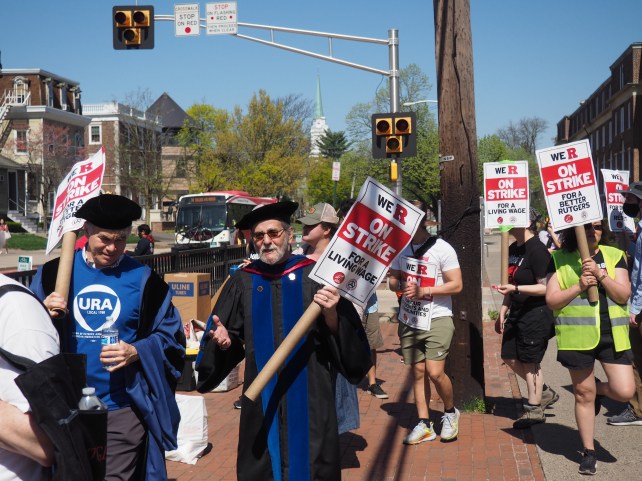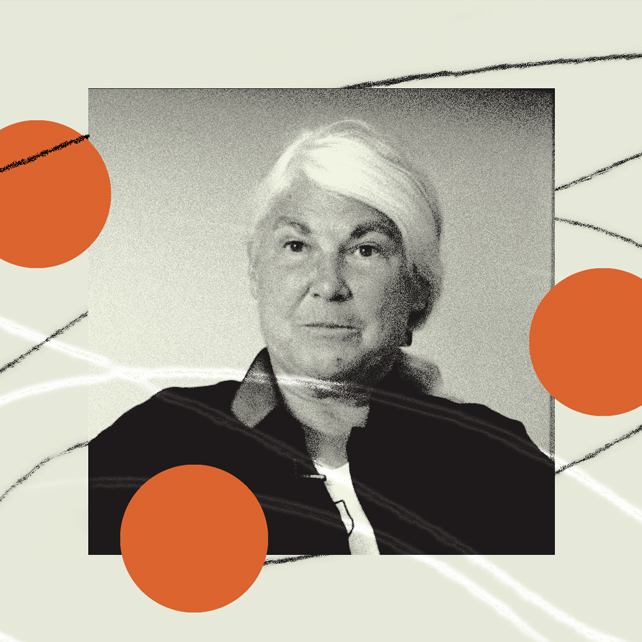By any measure, Stephanie Seneff is an accomplished scientist. A senior researcher at Massachusetts Institute of Technology’s Computer Science and Artificial Intelligence Laboratory, she’s been a leader in the emerging field of computer response to human speech. After earning two PhDs from MIT in the early ’80s, in the following decades she paved the way for the scientists who worked on virtual assistants like Alexa and Siri. In 2012, Seneff’s many achievements earned her the honor of being named a fellow of the International Speech Communication Association, a professional society for researchers in the field.
Many of Seneff’s MIT lab mates and former graduate students have continued to make breakthroughs; some have gone on to careers at the many tech companies eager to hire scientists with expertise in artificial intelligence. But Seneff has spent the last ten years going in a different direction, publicizing her theory that exposure to minute amounts of the weedkiller glyphosate—commonly known by the brand name Roundup—causes a host of neurological conditions, especially autism. Known as a spectrum disorder, autism manifests in a range of neurological diagnoses that run the gamut from subtle brain differences and trouble reading social cues to significant communication challenges. In a 2014 conference presentation, Seneff predicted that because of the ubiquity of glyphosate, half of all children born in 2025 would eventually be diagnosed as autistic. Since then, she often has repeated this claim in interviews and speeches, warning a tidal wave of autism cases was just around the corner.
It doesn’t look like Seneff’s forecast will pan out. Today, according to the Centers for Disease Control and Prevention, one in 36 children are autistic. And Seneff’s theory has been widely discredited: There is no evidence that glyphosate exposure causes autism. But the scientific consensus has not stopped her from airing her beliefs on social media and becoming a sought-after speaker at conferences. In 2020, with the onset of the pandemic, she broadened her Roundup theory to include vulnerability to the coronavirus, making the completely unsubstantiated claim that Americans were getting more serious cases of Covid than their international counterparts because glyphosate exposure weakened the immune system and increased the risk of severe infection.
For a quarter of a century, proponents of unproven autism treatments have overlapped with anti-vaccine activists. The vaccine skepticism movement took off after British physician Andrew Wakefield published a study in 1998 suggesting that routine childhood vaccinations caused autism. That study was later found to be fraudulent, the paper retracted, and Wakefield barred from practicing medicine in the United Kingdom. Nonetheless, the myth of vaccines causing autism persisted and has been amplified by organizations like Robert F. Kennedy Jr.’s Children’s Health Defense and celebrities including Jenny McCarthy, and Oprah Winfrey. Even the largest and most powerful autism advocacy organization, Autism Speaks, which was founded in 2005 and today runs a $50 million budget, did not officially distance itself from vaccine skepticism until 2015. Over the last few decades, many groups and individuals who spread falsehoods about vaccines as the cause of autism began to promote unproven and sometimes dangerous treatments for it—special diets, supplements, cleanses, and pricey medical spa experiences.
This world of dubious autism treatments used to be mostly limited to private social media groups and conferences. Indeed, beginning about a decade ago, the very notion of autism as a disorder began to lose currency among many autistic people and scientists who study autism: They started to view the condition not as an affliction, but rather as an innate brain difference. Autistic people experience the world differently, and that difference, they say, is something to be honored rather than treated.






